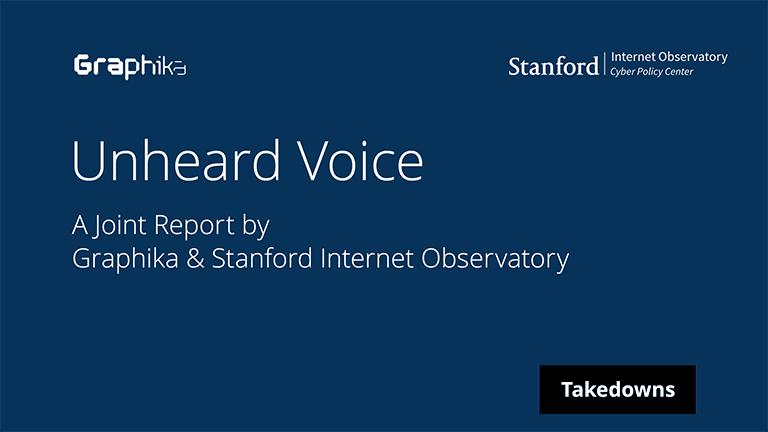Graphika and the Stanford Internet Observatory released a study showing a “series of covert campaigns over a period of almost five years” that pushed pro-Western misinformation on Twitter, Facebook and five other social media platforms. The operations targeted people living in Central Asia and the Middle East.
An investigation was launched after Twitter and Merta turned over the data on two overlapping accounts to Graphika and the Stanford Internet Observatory. The accounts were removed in July and August for violating teams of services, including “platform manipulation” and “inauthentic behavior.” The fake accounts deployed misinformation to set narratives supporting Western geopolitical goals.
According to the executive summary, “Our joint investigation found an interconnected web of accounts on Twitter, Facebook, Instagram, and five other social media platforms that used deceptive tactics to promote pro-Western narratives in the Middle East and Central Asia.” It continues, “The platforms’ datasets appear to cover a series of covert campaigns over a period of almost five years rather than one homogeneous operation.”
One operation by the covert accounts was directed at Central Asia. A narratives the fake accounts tried to spread was painting Russia as the looming enemy. “Assets in the group consistently portrayed Russia as a threat to Central Asia. A recurring narrative claimed that Russia is abusing Russian-Central Asian partnerships, namely the CSTO, to extract one-sided benefits…The assets also said Central Asian countries must leave these organizations if they wish to retake their full sovereignty from Russia.”
The Central Asia operations also sought to portray Russia as a villain and support the Ukrainian war effort. On several occasions, the accounts attempted to generate hashtag campaigns supporting Kiev.
The covert accounts campaigns against Iran linked to articles from fake media outlets to spread misinformation. The report says, “Several suspended accounts were linked to two sham media outlets operating in Persian.” However, not all the posts are linked to phony media outlets. The accounts frequently linked to stories from US government-funded sources like Voice of America.
A different operation attempted to set the discourse on the war in Yemen. “These accounts shared content critical of Iranian and Houthi rebel activity in Yemen. Posts accused Houthi rebel leaders of blocking humanitarian aid deliveries, acting as proxies for Iran and Hezbollah,” the report authors wrote.
While Graphika and the Stanford Internet Observatory do not name a culprit for the misinformation campaigns, they say the accounts were likely ineffective at spreading misinformation. “The data also shows the limitations of using inauthentic tactics to generate engagement and build influence online. The vast majority of posts and tweets we reviewed received no more than a handful of likes or retweets.”

































